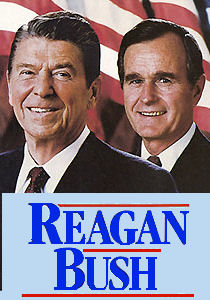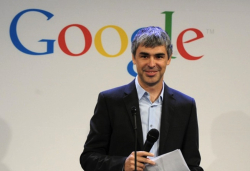 History shows that a dominant industry won’t get off its butt and take power until three things have happened:
History shows that a dominant industry won’t get off its butt and take power until three things have happened:
- Interests opposed to it take power.
- The economy gets driven into a ditch costing the dominant industry equity value.
- The government, rather than being embarrassed by this stupidity, vows to create more trouble.
When I first started researching political and economic history here, back in 2006, I saw generational cycles. I even saw that these cycles were driven by economics. I did not see that a political crisis continues until the newly-dominant industry seizes power.
The last time this all came together, in the form of an election, was in 1980. Ronald Reagan took power on behalf of the energy and media industries. The first was most important. The first provided the money.
Oil was handed considerable power under Nixon, in the crisis election of 1968. They got this almost without asking. They had been with Johnson, they stayed with Nixon. There were oilmen in the Ford Administration as well. But Jimmy Carter was elected in defiance of oil’s interests. He tried to rein-in the power of the oil barons, and their Middle East allies. He wore that cardigan sweater, symbolizing his opposition.
The industry organized against him.

In 2008, Barack Obama was handed power by Google. It was easy. They just Googled politics, they put it in the cloud. In retrospect, it was too easy, as easy as oil’s power grab under Nixon. Technology became politically naïve, assuming government would remain on its side. Google thought “don’t be evil” could be a policy.

Still, for the most part, technology has tried to accommodate. It has, for the most part, refused to go to war with Trump, as oil was reluctant to engage in battle with Carter during 1977. Mark Zuckerberg has done a listening tour and tried to purge “fake news.” Bill Gates has let successor Satya Nadella tweet weak-tea opposition to Trump policies. Tim Cook has said a few things, and Jeff Bezos has bought The Washington Post.

Google is the Exxon of our age. Google is the key to the politics of our time. Exxon didn’t seem active in the first year of the Carter Administration, either. It got active when it saw Carter trying to limit its profits, and degrade its market cap.
The same thing will now happen to Google.
Google stock is wobbly. A move toward $1,000 per share was stymied. It’s about to roll over, along with the rest of the big cloud players, as governments feel increasingly threatened by what, in the cloud, are normal business activities. Governments are talking about taxing Internet searches, about breaking up Google for being “too powerful,” about enforcing local laws on the global resource at costs Google can’t sustain, and still maintain profitability.

These five companies – Apple, Google, Microsoft, Facebook, and Amazon.com – are now worth a combined $3 trillion. A bear market in their stocks would shave $600 billion off that, and send the rest of the tech sector, indeed the whole market, into something resembling collapse.
The reaction of government to this is going to approach glee. It will see big tech as wounded, and move in for the kill.
But this is what neither Trump, the conservatives supporting him, even the news media doesn’t get.

Tech can replace oil. Tech is replacing oil. Tech is, at minimum, making energy, materials, the whole idea of money coming out of the ground, secondary in terms of wealth creation. Technology runs on human capital, on the best-trained, most motivated minds, however they can be obtained, and technology will not be denied.
All Trump’s moves against technology are doing is moving more jobs to China.
When Larry Page wakes up to realize he is fighting for his life, he’s going to get busy. So are the rest of the Cloud Czars. They are not going to let Trump, or anyone else, piss away $3 trillion in market cap and ship it to China without a fight. Of that you can be certain.

I doubt Google will need to reinvent the wheel. But it will start to ramp up funding for organizations that have its own interests in mind, both within the Democratic Party (which is not yet all-in with tech) and outside it. If we’re talking about Citizens United, where money has the vote, Page and the Cloud Czars can easily outvote the Oil Barons. Page and Sergey Brin are each worth more than a Koch Brother right now. Gates and Bezos are each worth more than both brothers put together. Zuckerberg can put Bob Mercer in his back pocket for pocket change.
The beast of technology power is being poked with a big government stick, on behalf of old industries and old business models. When the beast awakens, watch out.










